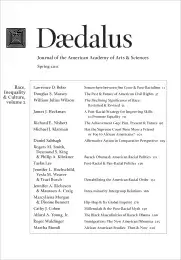Post-Racial & Pan-Racial Politics in the Age of Obama
In his acceptance speech on Tuesday, November 4, 2008, President-elect Barack Obama took note that “tonight, because of what we did on this date in this election at this defining moment, change has come to America.” On the same night, Obama’s Republican challenger, Senator John McCain, responded similarly: “This is a historic election, and I recognize the significance it has for African-Americans and for the special pride that must be theirs tonight. We both realize that we have come a long way from the injustices that once stained our nation’s reputation.” The next day, in a Los Angeles Times op-ed, scholar and critic Michael Eric Dyson declared: “The distance from King’s assassination to Obama’s inauguration is a quantum leap of racial progress whose timeline neither cynics nor boosters could predict. Today is a benchmark that helps to fulfill–and rescue–America’s democratic reputation.”1
Looking back through history, few would argue against the view that Obama’s election to the presidency represented a rupture from centuries of white privilege as a presumption and a reality. Since the election, a greater diversity of opinion has emerged on what the presence of an individual of African American descent in the White House means for the future of race relations and racial politics in America. One particular view, however, has had a curiously forceful hold on public discourse. Beside Dyson’s op-ed, Los Angeles Times columnist Shelby Steele wondered aloud, “Does . . .
